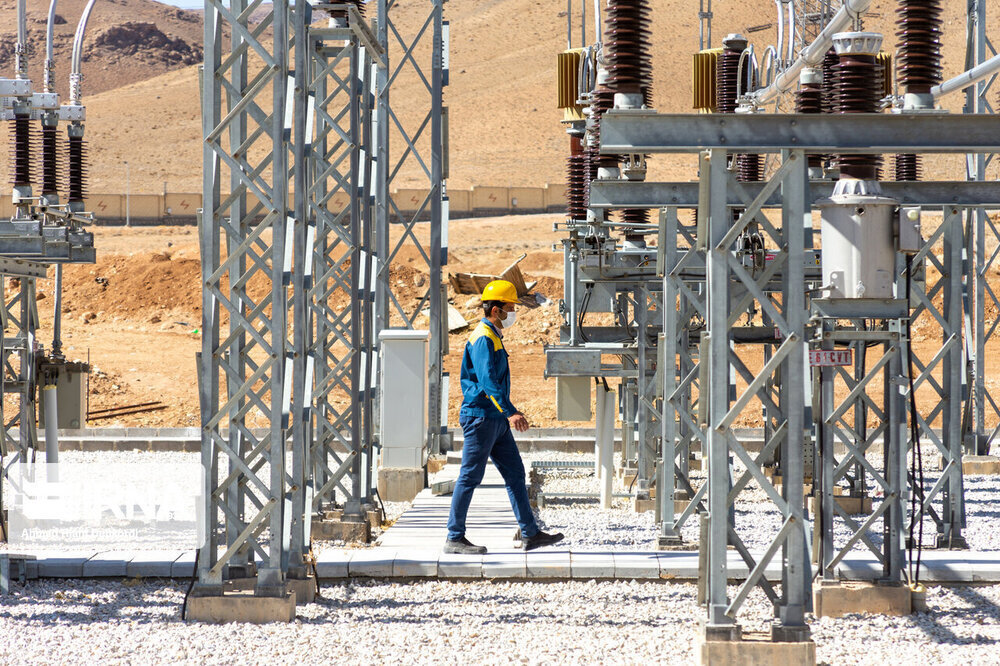Long-term solutions for electricity crisis

TEHRAN – Over the past few years, numerous articles and news pieces have been written on Iran’s electricity issues that have become more intensified recently due to the severe drought and the significant increase in the temperature across the country, and also illegal activities of cryptocurrency miners.
Every year with the arrival of the hot season, a huge gap appears between the electricity supply and demand in Iran, since electricity consumption skyrockets due to the increase in the use of air conditioning appliances while the power generation is reduced due to the decrease in the water storage behind the country’s dams.
The problem
Although the electricity crisis is a common issue in almost all the countries in the region, Iran should have not been wrestling with such a problem considering its abundant resources and being relatively more developed than the neighboring countries.
So, the question is what the country’s electricity sector should have done in order to prevent such problems in the long run?
To answer this question, one should look for the roots of the problem. Several reasons can be counted for the current electricity problems in the country, one of which is the lack of diversity in the country’s power sources.
Currently, over 80 percent of Iran’s power plants are thermal and mostly gas power plants, a small share is also accounted for by hydropower plants that are the ones that are affected the most by climate changes.
Another issue that can be pointed out here is the lack of education with regard to consumption management, and also the lack of strict regulations for controlling the consumption patterns of the households, industries, and government entities.
A third important issue to be pointed out is the need for the development of network infrastructure in order for the power grid to be able to handle the pressure imposed during the peak consumption period.
Long-term solutions
The Energy Ministry has been recently offering numerous solutions for tackling the country’s electricity issues during the summer time’s peak consumption period.
Earlier this year, Iran's Power Generation, Distribution, and Transmission Company (known as Tavanir) had announced that the company was implementing over 40 different programs for managing the electricity situation and preventing blackouts in the country.
Construction of new power plants using foreign investment, encouraging the country’s large industries to contribute to the country’s power generation [at least for meeting their own needs], and finally importing electricity from the neighboring countries are some of the mentioned solutions.
Two of the above-mentioned programs seem to be more practical in the sense that they could be appropriate steps for increasing power generation capacity and meeting the demands of big industries [which account for a big share of the country’s electricity consumption] using their own facilities.
Considering Iran’s geographic position, the country has great potentials for the development of renewable energy sources like solar, wind, biomass, and geothermal. The renewables, however, only account for seven percent of the country’s total nominal electricity generation capacity.
So, one of the most important strategies that the Energy Ministry should put on the agenda for solving the electricity issue is to focus more on constructing such power plants using domestic or foreign investments in order to diversify the country’s power sources and benefit from a huge potential that could definitely prevent such electricity issues in the long run.
Although electricity exchange with neighbors is a common trend among many of the world’s advanced countries, importing electricity should not be considered as a solution for addressing the electricity supply issue in the long run.
Instead of planning on importing electricity from the neighboring countries, the government should consider putting more emphasis on educational and encouraging programs for promoting positive consumption patterns among the people and different sectors of the country.
The Energy Ministry has been taking good steps in this regard over the past few years, but still, a long way is ahead for getting to the point where appropriate consumption behaviors are cemented in different sectors.
Back in August 2020, the Energy Ministry started implementing a program called "Power of Hope" based on which efficient electricity subscribers were rewarded with a 100 percent discount on their bills.
"This program will be implemented to both reward low-consuming subscribers and to encourage others to consume less and it is expected to reduce power consumption by 10 percent,” Energy Minister Reza Ardakanian said in a press conference on the occasion of the Government Week (August 23-29, 2020).
Overall, considering the experiences of the past few years, the Iranian government should work on long-term solutions, like what is just mentioned above, in order to break this cycle of crisis that is repeated year after year.
EF/MA

Leave a Comment